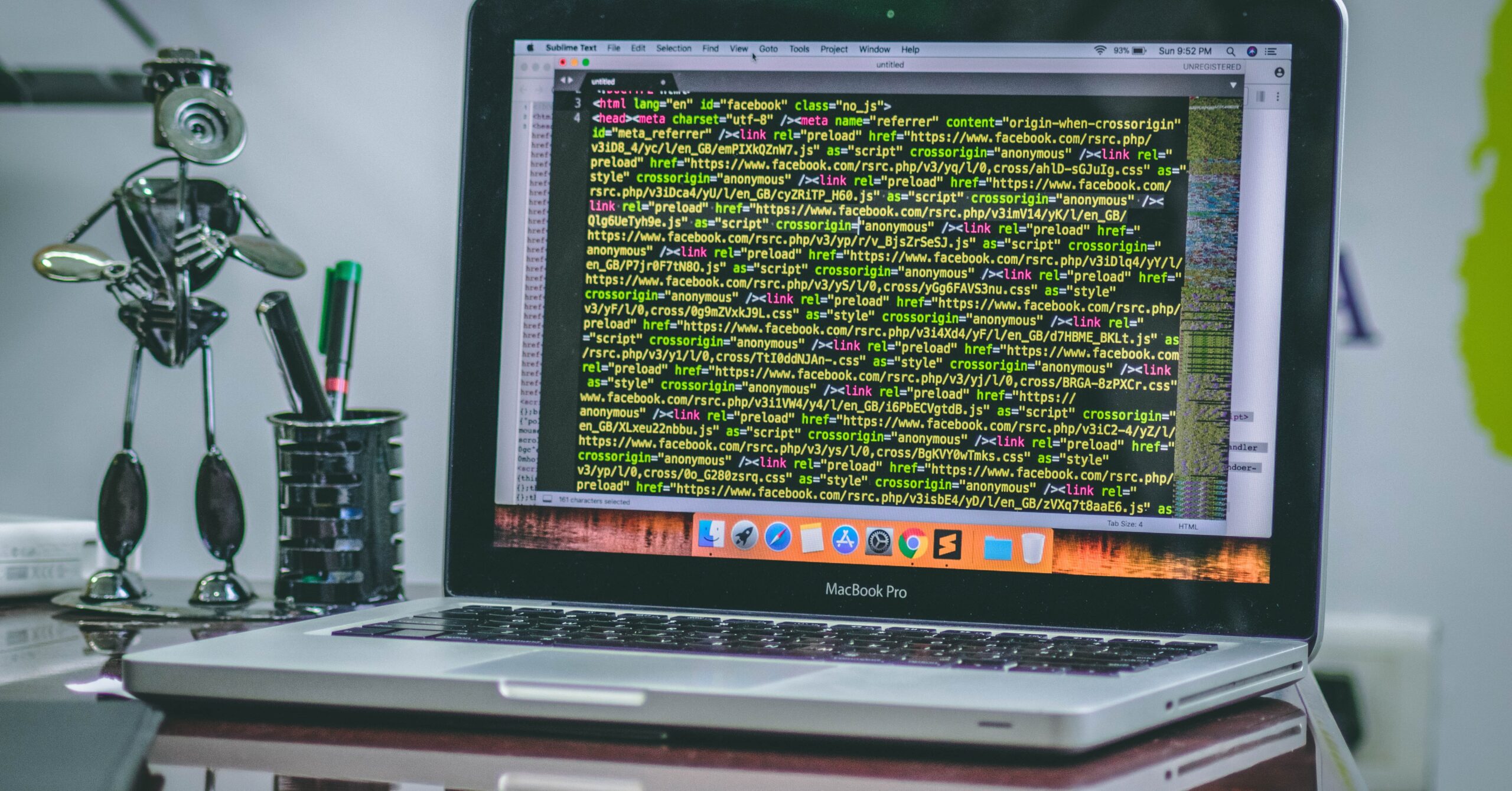
Computer Science: Master's vs. Bootcamps
You'll improve your knowledge and skill set in either a [...]

According to the University of Virginia’s online Master of Science in Data Science program website, “The application of data science across nearly every industry is one of the most important undertakings of the 21st century.” Why is this the case? In our technologically-driven age, a mind-blowing amount of data, over 2.5 quintillion bytes, is generated each day. So, it’s imperative that both the private and public sectors have the ability to sort through all this data and “structure, interpret, and present it in a meaningful way”—in order to gain customer insights, increase security, inform internal finances, streamline manufacturing, predict future market trends, and more.
As a result, data science remains a top industry replete with numerous opportunities for data science professionals. Yet, despite the great demand for data scientists, it’s oftentimes quite challenging to secure a job in this field, as hiring managers are struggling to find qualified talent who know what Matplotlib, Hadoop, Tableau, and NumPy are and how to use them (hint: they’re not names of asteroids that NASA is worried about hitting our planet).
You may be tempted by the allure of online data science bootcamps promising to build your data science skills from scratch and guarantee employment, but is it that simple? Should you go for a master’s program instead, even though it’s more expensive and time-consuming? This article on data science master’s vs. bootcamps explores both options and will help you determine which is the best choice for your career. It covers:
There’s no definitive answer to this question because the two aren’t mutually exclusive. Bootcamps enable people to acquire specific knowledge to transition into a new career in data science, while master’s degrees help those already working in data science obtain the expertise they need to advance to higher positions. But there are exceptions to both. Certain master’s programs are geared toward people looking to switch careers and accept inexperienced applicants, while Insight offers a seven week fellowship—which the tech news website CIO considers a bootcamp—for postdoctoral students.
A CIO article details the 15 best bootcamps for learners of all levels. The RMOTR bootcamp teaches web development, data science, and programming. It offers access to career coaches who help students get their first jobs in the industry. Students work in Python programming, meaning you only utilize the tools for that language, including Pandas, NumPy, Scipy, Matplotlib, and Bokeh. Northeastern University offers the Level program, designed to prepare students to become data analysts. The program includes coursework focusing on Tableau, SQL, and Microsoft Excel rather than building a skillset centered around Python.
While many bootcamps are designed to help students prepare to enter the data science field, they have admissions standards. According to one graduate, quoted in a San Francisco Gate article, “You have to prove that you’re functionally literate in code and can read patterns” before most programs admit you.
| Master’s | Bootcamp | |
| Pros | Networking opportunities, Name recognition, Thorough curriculum | Cheaper, Degree preparation, Shorter, Payment flexibility |
| Cons | Expensive, Time-consuming, Rigid | Less reputable, Too basic, Less structured, Challenging w/o payoff |
You can work in data science without a master’s degree, even without completing a bootcamp (though that’s even less likely). You’ll still probably need a relevant bachelor’s degree, years of experience in a related role (such as data analytics), and have earned several certificates. This is theoretically possible because data science is a skill-based field; not much else matters if you can prove yourself to be knowledgeable and capable.
That said, having a graduate degree on your resume is often the key to getting your foot in the door. It’s extremely difficult to demonstrate your skill set effectively, leaving no doubt in employers’ minds about your expertise. You need extraordinary self-motivation and a host of high-end projects to showcase on a site like github. That’s why bootcamps are often project-focused, and master’s degrees usually include a capstone project or thesis requirement.
There’s a reason why an overwhelming majority of data scientists have a graduate degree—it’s an expected qualification for many positions. According to a 2021 Burtch Works study, the vast majority of data science professionals have an advanced degree and almost 50% have a master’s.
| University and Program Name | Learn More |
|
Boston College:
Master of Science in Applied Analytics
|
|
|
Merrimack College:
Master of Science in Data Science
|
Remember, a data science master’s typically helps professionals advance their career rather than launch it. It’s helpful to spend two or more years in a lower-level role, frequently in data analytics or business intelligence, before applying because programs build on the foundational data mining and analytics skills you gain in an entry-level analytics role. Many degree programs teach you the skills needed to create data tools that collect, clean, and interpret data sets. If you are accepted into a program and don’t already have much work experience, you may not be able to take advantage of all the advanced data science course offerings and miss out on acquiring crucial new skills.
Programs may not state prerequisites, but there are general guidelines to follow if you want to make the most of your learning experience. The ideal candidate knows at least one programming language, such as:
Applicants also can expect to submit a personal statement, letters of recommendation from employers and/or faculty, their resume, and undergraduate transcripts. Many online programs are becoming test-optional. Stevens Institute of Technology, one of the top schools, has done away with test scores altogether.
Each data science program is different, depending on the focus of the degree. For instance, a Master of Applied Data Science can have a different focus from a Master of Science in Computer Science. Even a Master of Science in Data Analytics can provide data science-focused education, though it’s not as common. The Tufts University program “prepares you for a next-generation career in data analysis and data-centric problem-solving—or for further study in the data science field.”
Typical subjects for a data science program include:
Many data science professionals opt to specialize, which can lead to better jobs and higher salaries. There are multiple ways to accomplish this, including through enrollment in a master’s program track, self-study, certification, or completing a unique degree in the subject. Top specializations include:
AI can be a specialization track in a data science program. It helps data scientists perform their jobs more effectively—often by deciphering data and spotting trends amid a mammoth amount of data. As the volume of data increases, so does the importance of people who are skilled at developing useful AI tools.
Just about every data scientist needs big data experience. Most analytics and data science master’s programs teach students the techniques needed to work with big data. There are also excellent big data certifications.
Bioinformatics combines healthcare and data. While you may find bioinformatics coursework in a data science or computer science program, it’s also an excellent master’s path. Programs in this field teach students to comb through huge amounts of genetic data to accomplish goals like finding cures to genetic and infectious diseases.
According to Carnegie Mellon, computational finance “uses the tools of mathematics, statistics, and computing to solve problems in finance.” You’ll likely complete a master’s in computational finance, rather than specialize in it in a data science program.
You can study cyber security as part of a data science or computer science master’s, or via a master’s in cyber security program. Cyber security professionals utilize computer science principles to protect individuals, companies, and governments from cyberattacks.
Data engineers rely on excellent warehousing skills to move, store, explore, and transform data so data scientists can use it.
This is more of a skill than a specialty. You can learn data modeling techniques in most master’s programs. According to the CloverDX Blog, “Data modeling makes it easier to integrate high-level business processes with data rules, data structures, and the technical implementation of your physical data.”
Closely related to artificial intelligence, machine learning is a data science skill in high-demand. Understanding how to utilize and develop machine learning models, like deep learning, can lead to top data science jobs. Southern Methodist University offers a machine learning specialization that teaches students how to “utilize advanced computational algorithms needed to build platforms that expand the boundaries of machine cognitive function to provide solutions, advance automation and evolve processes.”
Though the job search for data scientists can be difficult, the potential payoff is enormous. The job market is rich for candidates with the right mix of education and experience—especially in established tech hubs like New York City, Seattle, and San Francisco, and growing areas like Austin, Toronto, and Denver.
When you think of data science jobs, you may picture large companies like Microsoft and IBM, but those aren’t the only places hiring. The federal government also needs data science professionals and pays quite well.
Top data science jobs include:
As a rule, the more specialized your abilities, the better your pay, according to Burtch Works. Level three data scientists, which the study defines as specialized professionals with at least nine years of experience, earn a median base salary of $135,000 with a master’s and $140,000 with a PhD. In comparison, level two professionals, who have between four and eight years of experience but aren’t as specialized, earn $105,000 with a master’s and $115,000 with a PhD. New professionals (level one) earn $80,000 with a master’s and $75,000 with a bachelor’s degree. Managers typically make more, and senior-level managers (level three) with a PhD earn the most—a median base salary of $165,000.
It’s better to judge master’s programs through the lens of your professional goals, and factors like travel distance and time commitment than rankings. Maybe you want a program that focuses on building out your skill set through immersive, real-world data projects or one with excellent networking opportunities and career support. Maybe you already have a great job and want to study part-time, so you can advance at your current organization. In that case, online courses are your best choice.
Still, it’s useful to look at the rankings of top programs to see how your ideal schools stack up. Highly regarded data science master’s programs include those offered by:
(Last Updated on June 12, 2024)
Questions or feedback? Email editor@noodle.com

You'll improve your knowledge and skill set in either a [...]

The numbers support the decision to switch careers to data [...]

Data scientists and software engineers both code, but what they [...]
Categorized as: Data Science, Information Technology & Engineering